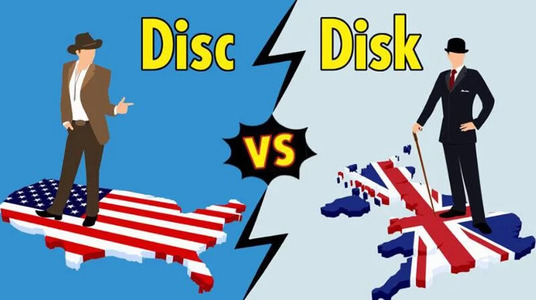Disc and disk are two words that often confuse English speakers and writers. They both refer to something round and flat but have different meanings and uses in different contexts. This article will explain the difference between disc vs disk, and how to choose the right spelling for different situations.
Disc Vs Disk: The Origin and Meaning
Disc and disk are derived from the Latin word discus, which means “quoit, disk, dish”. The word discus comes from the Greek word diskos, meaning “something thrown”. The ancient Greeks used diskos to refer to a round, flat object they threw in athletic competitions, such as the discus throw. The word diskos also gave rise to the word discoid, which means “shaped like a disk”.
The word disc was adopted into English in the late 16th century, and it was used to describe various round, flat objects, such as plates, coins, or heavenly bodies. The word disk was adopted into English in the early 17th century, and it was used to describe similar objects, such as the sun, the moon, or the earth. The two words were used interchangeably for a long time until they developed different meanings and uses in different fields and industries.
Disc vs Disk: The Usage and Preference
Today, disc and disk are still used to refer to something round and flat, but they have different preferences and connotations in different contexts. Here are some of the common rules and examples of how to use disc and disk:
In general, disc is the preferred spelling in British English, while disk is the preferred spelling in American English. However, there are some exceptions and variations, depending on the specific term or context.
In music, the disc is the more common spelling, especially for devices that store and play sound, such as compact discs (CDs), digital versatile discs (DVDs), or laser discs. However, disks are also sometimes used, especially for devices that store and play video, such as video disks or hard disk recorders.
In the context of computers, disk is the more common spelling, especially for devices that store and process data, such as disk drive, floppy disk, hard disk, or optical disk. However, discs are also sometimes used, especially for devices that use light to read and write data, such as compact discs (CDs), digital versatile discs (DVDs), or Blu-ray discs.
In sports, disc is the more common spelling, especially for the objects that are thrown or spun, such as the discus, the Frisbee, or the disc golf. However, a disk is also sometimes used, especially for slid or rolled objects, such as the curling disk, the shuffleboard disk, or the disk bowling.
Conclusion
Disc vs disk are two words that often confuse English speakers and writers. They both refer to something round and flat but have different meanings and uses in different contexts. In general, disc is the preferred spelling in British English, and it is more common in the context of music and sports. Disk is the preferred spelling in American English, and it is more common in the context of computers and medicine. However, there are some exceptions and variations, depending on the specific term or context. Therefore, it is important to choose the right spelling for the right situation and to be consistent and accurate in your writing.





Comments